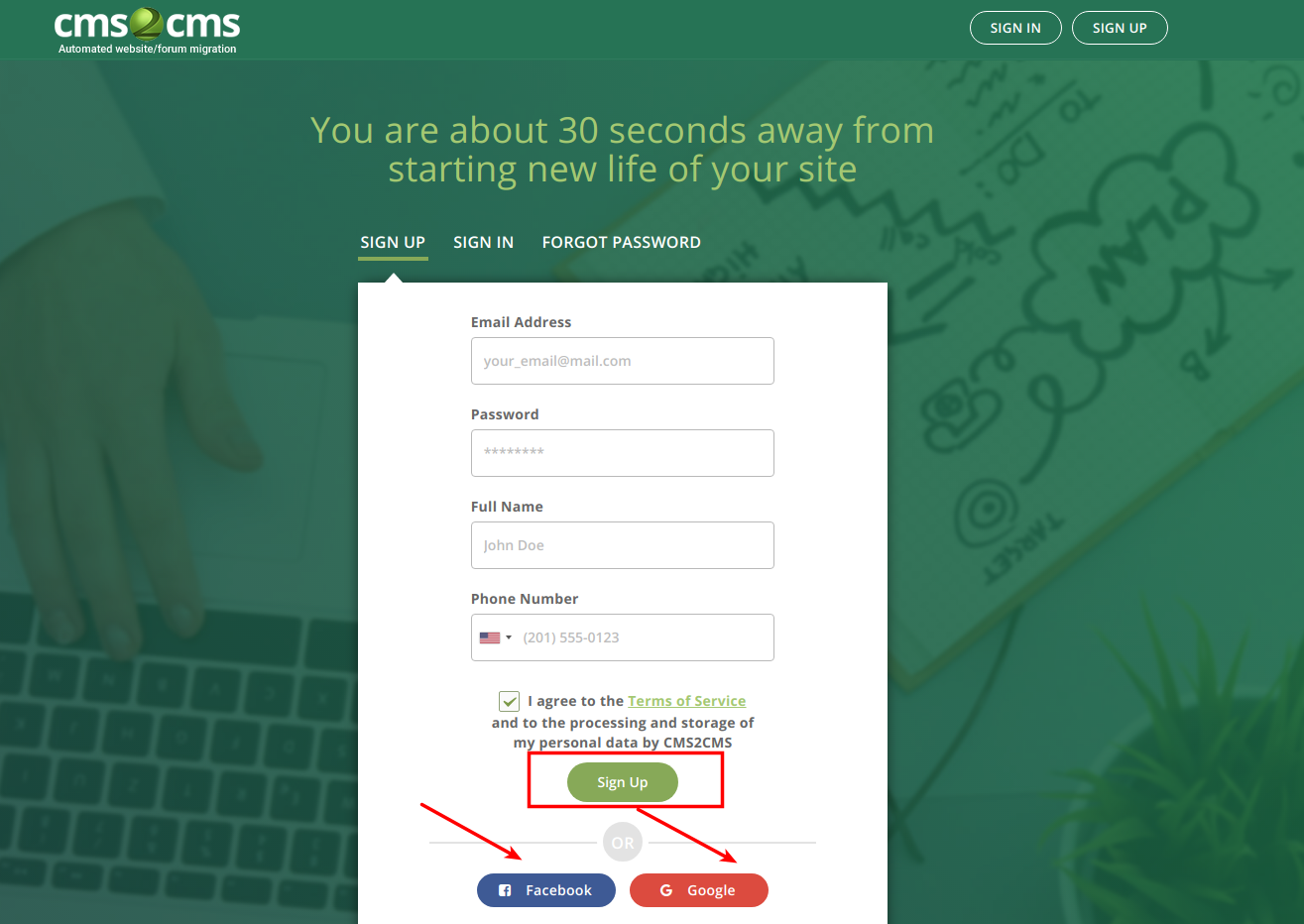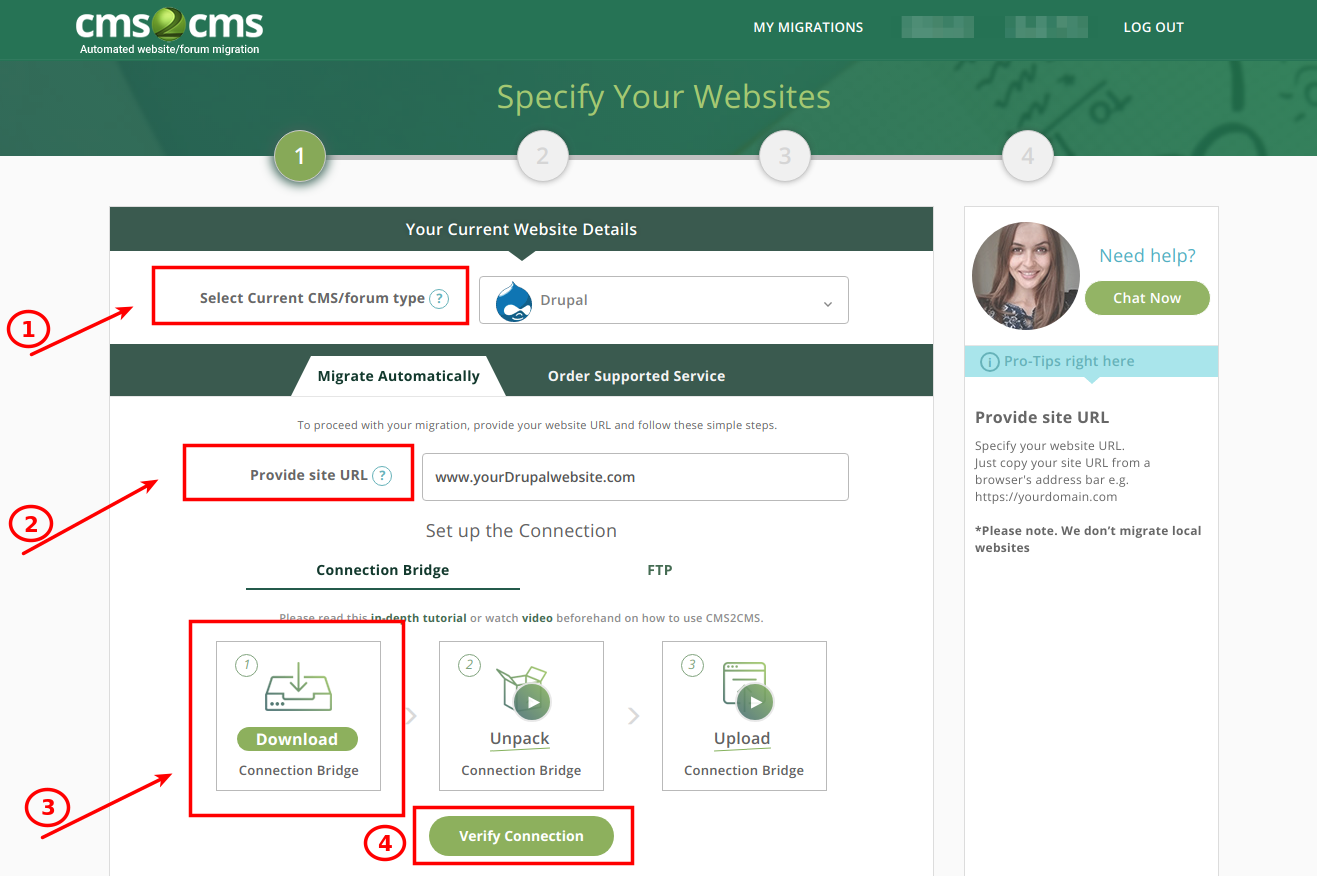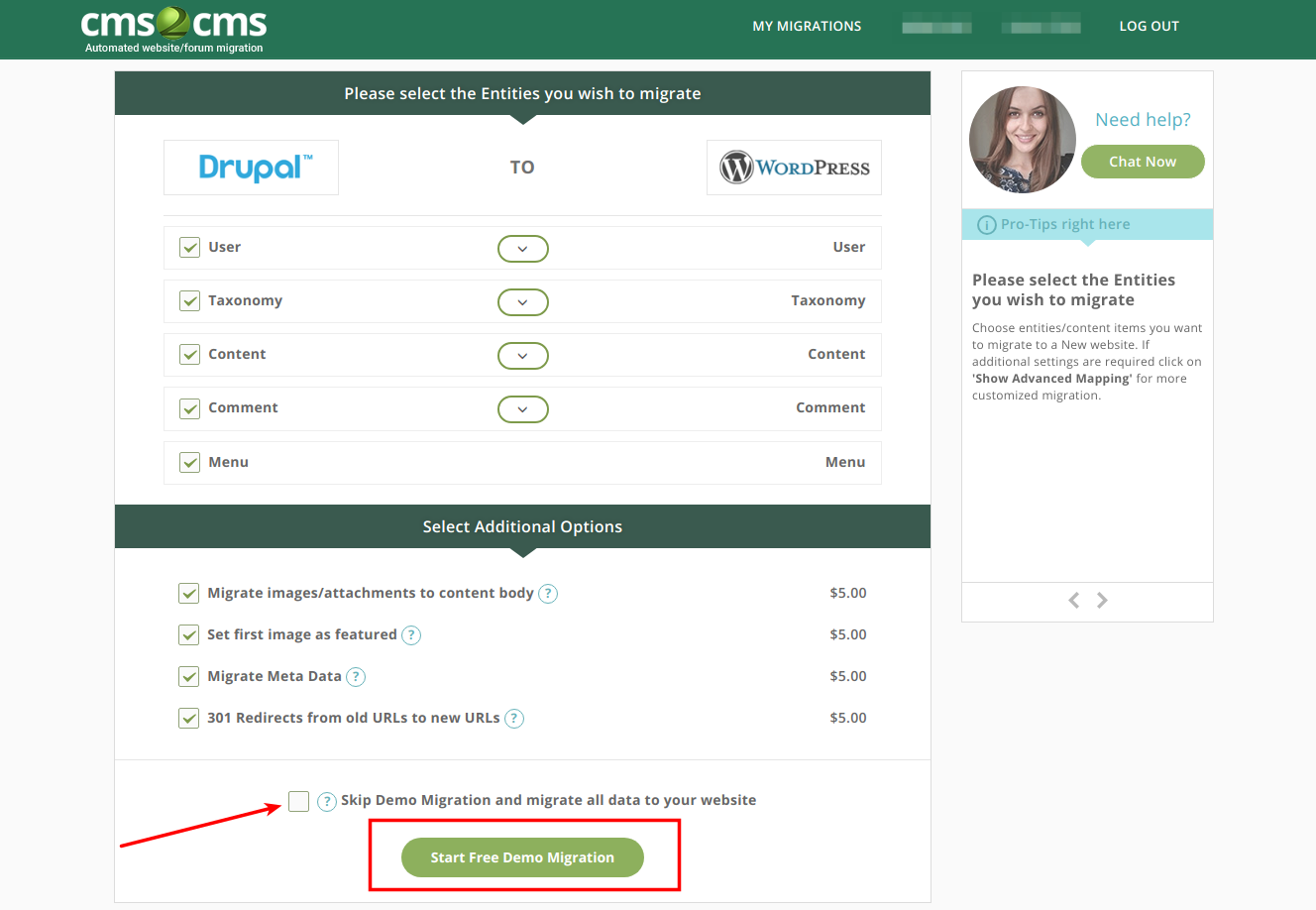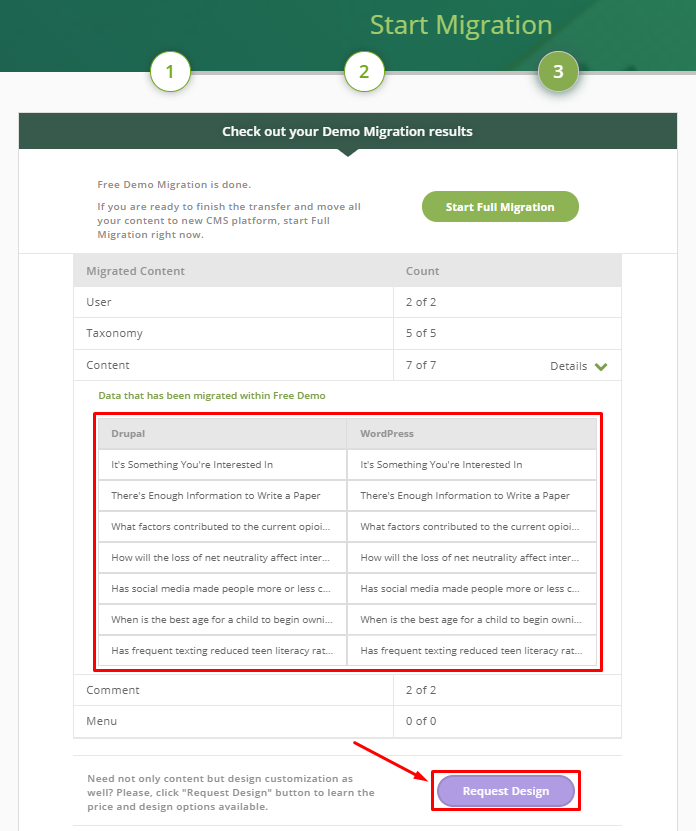It’s a common misbelief that the more complicated CMS platform is, the more difficult to migrate. Drupal is a powerful content management system capable of handling projects of any level and complexity. When it comes to installation and customization, Drupal is not as user-friendly as WordPress, for example. In a nutshell, if you are an absolute novice in the CMS world, using Drupal without a developer’s hand is close to impossible.
Both CMSs are pretty similar – both can be used to post and maintain the content, top companies use both, and both are built on the same methodology, namely PHP and MySQL. Then what makes them so special? To answer this question, certain factors need to be considered: the kind of website you will build, the level of experience, and the amount of time you can spend to get acquainted with the platform.
WordPress
WordPress is undeniably the most actively used and popular CMS. Powering approximately 30% of websites across the world – that platform currently runs the internet. WordPress can be an excellent choice for those with minimal technical skills and people looking to create an awesome powerful website. WordPress benefits that attract the interest of consumers:
- Simplicity – taking the shortest amount of time to get the site running, WordPress is one of the best options for beginners and first-time users. But, if you’re going through a thorough learning curve, you will become a total pro in developing WordPress websites/blogs, with or without coding skills.
- Strong SEO – offers great native SEO features and amount of SEO plugins, the CMS helps improve traffic to a website.
- Plugins – there are many plugins (+49k) for all the requirements, and many of them are free or not too expensive.
- Flexibility – WordPress offers a perfect foundation for creating every sort of website with any sophistication.
Drupal
Drupal is the perfect software for large websites with lots of pages and lots of users. It means hundreds of thousands of both, or more. The system can climb above the CMS terrain due to the following advantages:
- Flexibility – provides the functionality to do anything from small blogs to massive business websites containing thousands of pages and users.
- Developer-Oriented – it is geared to highly professional developers with stellar experience capable of taking full advantage of the platform.
- Great for SEO – even with the simple installation, Drupal websites are very competitive in search engine rankings.
- Powerful – grappling with a large amount of traffic, the site has proved itself a perfect match for major and extended online ventures.
Actually, Drupal to WordPress migration is one of the most frequent transfer users ask for. That’s why aisite service did its best to allow its users to move as many content items as possible.
- pages and posts;
- categories and tags;
- comments;
 content images;
content images;- SEO URLs;
- users;
- attachments (mp3, pdf, video files);
- custom fields;
- menu and its items;
- metadata;
- 301 redirect;
- SEO ranks
All that will be transferred from Drupal to WordPress in a fully automated way. And that’s only a basic list of entities which you can migrate. Depending on your needs, a customized migration is available.
Now, let’s get to the point – how to migrate Drupal to WordPress?
1. Create aisite Account
To start automated Drupal to WordPress migration, the first thing that needed to be done is to sign up with aisite. Provide your name, email, phone number, and choose a password. You can also sign in via your Facebook or Google account. For this, choose the appropriate option.

2. Connect to Existing Drupal website
Choose Drupal as your Existing CMS and enter its URL address. Set up the connection to your Drupal website. For doing this, download and install the Connection Bridge to your computer. Follow the video instruction to do it properly. When finished, press the “Verify Connection” button.

3. Provide Your New WordPress Website Details.
Now, choose WordPress as your Target CMS platform and provide its URL. To install the Connector plugin to your WordPress site automatically, provide your WP admin login and password. In case you don’t have your WordPress installed yet, you can try Migration to aisite Test Site.

Also, you can check this video to see the whole Drupal to WordPress migration process!
4. Run Free Demo Migration
Before migrating Drupal to WordPress, aisite service offers you a preview of your website’s future look and run Free Demo migration. Choose the Entities and additional options you will migrate and press the ‘Start Free Demo Migration’ button.

5. Check the Results
Check out the links in the table, and you will see how your migrated posts look like on the new WordPress CMS platform. If you are satisfied with the result, complete the migration!
Also, you can order the Design customization! Review the Design packages offered and select the most suitable one!

Summing Up
As it said, to each his own. Running a website is not a static process and needs constant improvements. There are millions of website owners who find Drupal the most suitable platform. Still, if you belong to those seeking user-friendliness, catchy design, and functional plugins – WordPress is just the ticket!
Give aisite a try and preview how your Drupal website might look like after the migration. Get a refreshed project in a matter of minutes!











